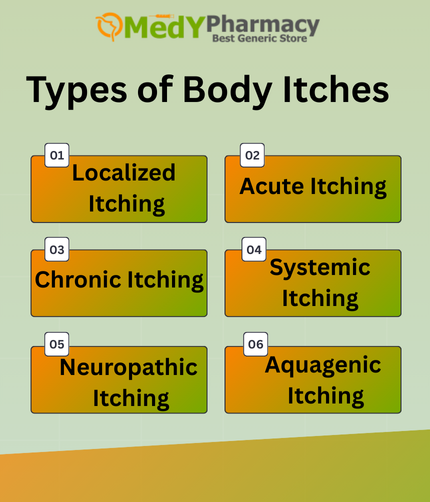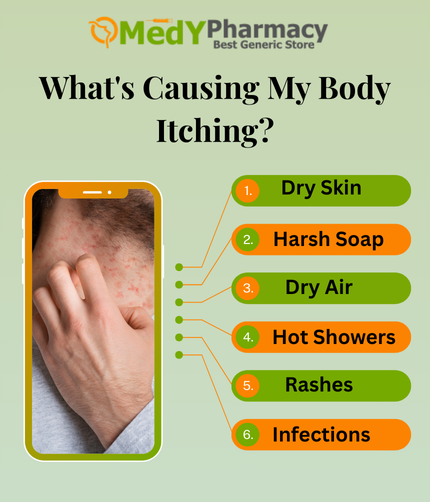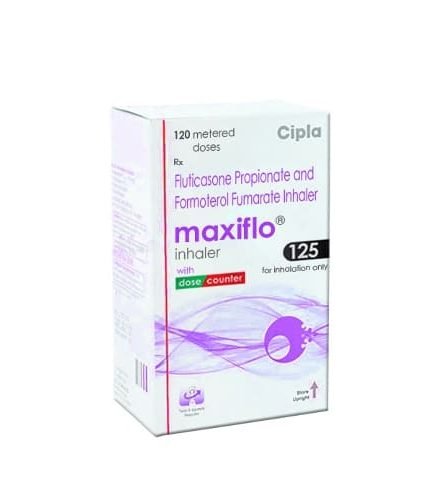Introduction:
Itchy skin after a bath or shower can be caused by several things, such as skin responses or disorders. While there may be ways to avoid them, people should address any worries with a dermatologist.
Applying a lotion or moisturiser might not always be the easiest option to treat these symptoms. Dry, sensitive skin occasionally needs extra attention to reduce the dryness and irritation that trigger the itch.
It’s also critical to keep an eye out for additional symptoms, such as rashes, peeling, or scaling, as these might point to a medical issue that requires attention.
- Rashes
- Blisters
- Swelling
- Redness
To find out more about the possible reasons for post-shower Itches and how to address them, continue reading.
When there is no obvious discomfort, the causes can be more difficult to determine and could indicate a neurological, mental, or organ problem that requires medical attention.
A frequent symptom, known as pruritus, itchy skin makes you desire to scratch yourself to get rid of the Itches. Without medical intervention, itchy skin often goes away on its own.
In the majority of cases, some form of this is the reason. You can observe noticeable skin discomfort, such as a rash or pimples.
What Are Body Itches?
Pruritus, the medical term for body itches, is an unpleasant, annoying feeling that makes one want to scratch their skin. Itches can be localised or widespread, and it might indicate several underlying disorders, from systemic illnesses to dry skin.
Even though Itches are normal and usually innocuous, severe or ongoing Itches can have a major negative impact on a person’s quality of life by causing mental discomfort, sleep difficulties, and skin damage.
Numerous things can contribute to it, such as skin conditions, allergic responses, infections, liver or renal illness, iron deficiencies, thyroid issues, and even some drugs.
Additionally, environmental stimuli such as heat, dry air, or certain textiles might cause itches. Occasionally, there could be no obvious rash, which makes diagnosis more challenging. Managing body itches entails determining the root cause, treating it, and reducing symptoms using moisturisers, antihistamines, corticosteroids, or lifestyle modifications.
Even though a chronic itch might be excruciating, there is frequently a straightforward fix. Avoiding anything that seems to cause the Itches, trying a new fabric, and taking additional care of your skin are all options. To determine the cause and the best course of action, consult your physician if that doesn’t help.
It’s a typical skin inflammation. You want to scratch the place that is itchy. It may be rather unpleasant and annoying.
How Is Seasonal Change Related To It?
Itchy lumps on the skin might result from the heat. This rash is known as prickly heat or heat rash.
Sun-exposed parts of the skin may develop itchy or burning patches or pimples.
Due to UV sensitivity, people may get hives after being in the sun. This sensitivity may be heightened by specific drugs.
A sunburn can cause irritation, Itches, and damage to the skin.
- Cold Temperatures
- Low Humidity Levels
- Central Heating
Itches, irritation, and rough patches on certain body parts are some symptoms of winter rash. It can sometimes spread to different areas of the body.
The hands and arms are more frequently impacted since they are usually exposed to colder temperatures more frequently.
Rehydrating lotions, oils, and moisturisers are the primary therapies for winter rash.
A person should wash with warm water and stay away from strong soaps or cleansers, much like when treating heat rash.
Using a humidifier in the house may also help people mitigate the negative effects of central heating.
Things to Avoid If Your Skin Is Sensitive At Night
Avoid sleeping in anything that irritates your skin. You can dress in pyjamas composed of silk or cotton, which are both comfortable and natural.
Maintain a cool temperature in your room, between 60 and 65 degrees Fahrenheit. Itches can be caused by overheating.
Before bed, stay away from alcohol and caffeine. They increase blood flow to warm your skin by widening blood vessels.
The use of scented soaps, fragrant lotions, cosmetics, and other items that might irritate your skin should be avoided.
Refrain from scratching. You may aggravate your skin worse. If you have a nighttime need to scratch, try to keep your fingernails short.
Types of Body Itches
Based on their causes and physical manifestations, the many forms of body itches are broken down as follows:

- Localized Itches
When an itchy sensation only affects a small, targeted area of the body rather than the entire body, it is referred to as localized Itches. This kind of Itches is typically brought on by localized skin reactions or direct irritation.
Common reasons include skin illnesses like scabies or fungal infections, insect bites, allergic responses, and contact with irritating materials.
- Acute Itches
Acute Itches is a type of Itches that appears suddenly, usually lasts for less than six weeks, and is frequently associated with transient or observable reasons. Usually a symptom rather than an illness in and of itself, it is the body’s instant reaction to irritation, allergies, or small traumas.
Food allergies, bug bites, drug side effects, and contact with irritants such as soaps, detergents, plants, or certain textiles are all common causes of intense Itches. Temperature fluctuations, dry skin, and sunburn can all cause severe Itches episodes.
- Chronic Itches
Persistent Itches can occur all over the body or just in one spot, and it may or may not be accompanied by obvious changes to the skin. In many situations, persistent scratching can exacerbate the issue by causing infections, discoloration, or thicker, damaged skin. Regular activities, sleep, and emotional health are frequently disrupted by the feeling.
Treatment entails a comprehensive medical assessment to determine the underlying reason, and management may require prescription drugs, including corticosteroids, antidepressants, antihistamines, or therapies that affect nerve reactions.
- Systemic Itches
Itches that come from inside or “systemic” sources, as opposed to skin-related problems, are known as systemic Itches, or widespread pruritus without an evident skin rash. A medical disease that affects internal organs or systems is typically the cause of this type of itch, which can be found all over the body.
It’s critical to seek medical assistance if the Itches are chronic and unexplained, since systemic Itches can indicate a dangerous condition, particularly when combined with other symptoms like exhaustion, jaundice, weight loss, or night sweats.
- Neuropathic Itches
Due to the ineffectiveness of conventional anti-itch medications like topical creams or antihistamines, neuropathic Itches can be difficult to cure and is chronic.
Rather, the course of treatment may include physical therapy, nerve blocks, or other neurological therapies, together with medicines that alter nerve activity, such as gabapentin, pregabalin, some antidepressants, or anti-seizure drugs.
Given that neuropathic Itches can significantly impair quality of life and is frequently associated with more severe neurological diseases, a precise diagnosis and a focused treatment plan are crucial.
- Aquagenic Itches
The rare and poorly understood illness known as aquagenic Itches, or aquagenic pruritus, is characterized by acute Itches that happen once the skin comes into contact with water, regardless of its cleanliness or temperature.
Lifestyle changes such as taking shorter showers, using lukewarm water, using moisturizing lotions before or after washing, and avoiding harsh soaps may help many people have less severe symptoms. While not fatal, aquagenic Itches can have a major effect on day-to-day functioning and mental health, particularly if it is severe and frequent.
Diagnosis of Body Itches
Consult a physician if you’re concerned about your itchy skin that doesn’t have a rash. They will examine you physically and inquire about the origins of your irritation.
- Tests on blood
- Sample of urine
- X-rays and other imaging experiments
Your doctor can use the findings of these tests to determine whether itchy skin is a symptom of an underlying medical disease.
If your doctor determines that you have an underlying medical problem that is causing your Itches, they will either suggest a course of therapy or refer you to a specialist for treatment.
An oncologist would treat cancer, a psychologist or psychiatrist would treat mental health issues, a neurologist would treat nerve disorders, and so on.
A dermatologist may be recommended by your physician if they are unable to find any underlying medical conditions that could be the reason.
A dermatologist is a medical professional who focuses on treating skin conditions. To determine what’s causing your Itches, they might be able to:
- Performing a skin biopsy
- Posing queries
- Analyzing your skin visually
How Do You Cure Body Itches?
In addition to relieving the painful feeling, treating the underlying cause is essential to curing body Itches, commonly referred to as pruritus. Since there are many different causes of Itches, such as dry skin, allergies, skin disorders, infections, internal illnesses, nerve problems, or even psychological stress, each patient’s therapy needs to be customized.
For moderate and transient Itches, basic solutions like hydrating the skin, washing with mild soaps, and avoiding irritants could be sufficient. To ascertain if a skin ailment, a systemic problem, or a neurological or allergic reason is to blame, chronic or severe Itches often requires a medical assessment.
Doctors may give antihistamines for allergies, corticosteroid creams for inflammation, antibiotics or antifungals for infections, or medicines that target the nerves for neuropathic itching in these situations. In instances that are persistent or more complicated, phototherapy and psychological assistance could be suggested.
Lifestyle modifications that help calm the skin and stop flare-ups include drinking enough water, dressing in breathable, soft clothing, controlling stress, and avoiding hot showers. The objective is to address the underlying cause as well as the symptoms to offer long-lasting treatment and bring back skin comfort.
- Soothing Topical Treatments
- Gentle Skincare Habits
- Avoid Triggers
- Stress and Mental Health
How Can Skin Irritation Be Avoided?
Preventing skin irritation entails shielding your skin from environmental factors, allergens, and behaviors that might deplete its natural moisture content or induce inflammation. Skin irritation can be caused by contact with specific materials, chemicals, environmental factors, or skincare products.
Creating a moderate skincare regimen, drinking enough water, and leading a wise lifestyle may all help you keep your skin calm and healthy. It’s also critical to be mindful of the particular sensitivities of your skin and to stay away from any known irritants.
- Use Gentle
Choose cleansers made especially for sensitive skin that are gentle and fragrance-free. Products that include harsh chemicals or alcohol should be avoided since they might deplete the skin’s natural oils, causing irritation or dryness.
For dry or sensitive skin, cream-based cleansers are frequently preferable to foamy or gel cleansers, which can occasionally be more abrasive.
- Wear Soft
Wearing soft textiles is a crucial step in avoiding skin irritation since some materials can cause friction, Itches, or allergic responses when they come into contact with the skin. Your skin’s sensation may be greatly affected by the clothing you wear, so picking the correct materials will help shield your skin and lower the chance of discomfort.
For people who are prone to problems like rosacea, eczema, or contact dermatitis, cotton and silk are the best options because they are hypoallergenic and less likely to trigger such responses.
- Moisturize
One of the most crucial actions in avoiding and managing skin irritation is moisturizing your skin. Making sure your skin is properly moisturized helps to maintain moisture, build the skin’s natural barrier, and stop more irritation, regardless of whether you have dry, sensitive, eczema, or psoriasis.
An effective moisturizer restores lost moisture, keeps the skin from drying out, and calms the skin while providing defense against the factors that might irritate it.
- Hot Showers
Even though hot showers might be soothing, they can seriously damage your skin, particularly if you have dry or sensitive skin. In addition to causing dryness and irritation, prolonged hot showers can deplete the skin’s natural oils, aggravating pre-existing skin disorders like rosacea or eczema.
By being aware of the effects of hot water on your skin and modifying your shower routine, you can preserve the health and safety of your skin.
The skin’s barrier can be compromised by hot water, making it more vulnerable to infections, allergies, and environmental irritants. The risk of skin infections, redness, or flare-ups of psoriasis and eczema may rise as a result.
- New Products
The correct skincare products may significantly improve the way dry or irritated skin is managed. With new products being released to help calm, moisturize, and protect the skin, the skincare industry is always changing. Your skin may receive the attention it need by using new products, regardless of whether you have sensitive skin, a skin problem, or are just trying to make your skincare regimen better.
Facial mists offer a rapid boost of refreshment and moisture. Usually, they contain calming components like cucumber extract, rose water, or aloe Vera to soothe dry or irritated skin.
- Stay Hydrated
In addition to providing your body with many benefits, drinking adequate water may help preserve the suppleness, smoothness, and natural glow of your skin. On the other side, dehydration can cause irritation, dry, lifeless skin, and even worsen pre-existing skin issues.
Your skin’s suppleness and elasticity are preserved by water. Your skin will stay firm, young, and sagging-free if you drink enough water. Because it lacks the moisture needed to keep its firmness, dehydrated skin might seem more wrinkled or prone to fine wrinkles.
- Skin from the Sun
Your skin may be profoundly affected by the sun. Although we need vitamin D from sunshine, too much or continuous sun exposure can be bad for us and cause skin damage, early aging, and even skin cancer. To keep your skin healthy and lower your chance of developing long-term skin problems, you must know how to shield it from the sun’s damaging rays.
The DNA in skin cells can be harmed by both kinds of UV radiation, which can cause mutations that could ultimately lead to skin cancer.
- Manage Stress
Anxiety, despair, and mood changes are among the mental health issues that prolonged stress can cause or worsen. Excessive stress can lead to emotions of irritation, overwhelm, and powerlessness, which can impair your mental health and emotional fortitude.
Heart disease, digestive problems, and compromised immunological function are among the chronic illnesses that might result from these physiological reactions over time.
- Allergens
Anything that might cause the body to respond allergically is called an allergen. Allergens cause an immunological reaction in those who are allergic to them, even though they are generally innocuous. A person’s immune system incorrectly perceives an allergen as dangerous when they come into contact with it, causing them to produce antibodies in response. Numerous symptoms, ranging from minor to severe, result from this.
Various physiological components, such as the skin, respiratory system, digestive system, and eyes, might be impacted by allergic responses. Life-threatening problems, including anaphylaxis, a severe allergic response that happens quickly and needs emergency medical intervention, can result from them in extreme situations.
Natural Treatments for Itchy Skin
By taking particular care of your skin, you might be able to relieve the itch yourself. Additionally, these suggestions might help calm your skin while you receive further medical care.
- Try using a cooling or numbing lotion or an over-the-counter anti-itch cream.
- An itchy scalp may benefit from using a medicated shampoo.
- Apply a cold, moist towel to irritated skin many times during the day.
- Take a brief shower and use a low temperature.
- Make use of moisturizing, gentle soaps.
- Turn on a humidifier.
- Don’t try to scratch. It may worsen a rash and cause an infection.
- Use laundry and cosmetics designed for sensitive skin, and wear soft-fabric clothes.
- Keep your cool.
- Take a soak in a tub filled with cool water and a skin-soothing product such as baking soda, Epsom salts, or a bath made with oats.
- Prescribe an over-the-counter allergy medication.
- Maintain hydration by consuming a lot of water.
Why Does Hot and Humid Weather Cause Itches on My Skin?
When it’s hot and muggy, your body tries to cool itself by sweating. Water, salts, and other minerals are all found in sweat, which can irritate the skin when it builds up on the skin. Sweat can leave salt crystals on your skin when it evaporates, which can cause dryness and Itches, particularly if it is not thoroughly cleansed or wiped off.
Your sweat glands may become obstructed in hot and muggy weather, preventing the discharge of perspiration. Usually seen in sweat-prone regions such as the back, chest, armpits, and groyne, it manifests as red, itchy pimples on the skin.
Warm, humid conditions are ideal for fungal infections like jock itch and athlete’s foot.
Blood flow to the skin is increased by heat because it dilates blood vessels. Even though it helps cool the body, this procedure can irritate and cause itchy skin, especially in those with sensitive skin.
As the sun can irritate your skin, protect it from its damaging effects. Reapply sunscreen frequently to prevent sunburn, and choose a broad-spectrum sunscreen that is appropriate for your skin type.
What Can I Do To Stop The Itches In My Body?
One of the most prevalent reasons for itches is dry skin. After taking a shower or whenever your skin feels dry, using a moisturiser can help seal in moisture and stop irritation. To prevent inflammation, use a mild moisturiser without any scent.
To lessen itches, use a cold compress or a cool, moist washcloth on the affected region for ten to fifteen minutes.
While it may be tempting to scratch when your skin irritates, doing so might exacerbate the problem and could result in infection or skin damage. Instead of scratching, try softly pressing or tapping the itchy spot.
A mix of self-care techniques, such as moisturising, applying anti-itch creams, avoiding irritants, and maintaining proper hydration and temperature, will help reduce body itches. For an accurate diagnosis and treatment plan, it’s critical to speak with a healthcare provider if the itching continues or is accompanied by additional symptoms. You may successfully control and lessen itching by determining the reason and taking preventive action.
Make Use of Medicated Cream
Skin infections caused by different bacteria and fungi can occasionally cause itches. Using a medicated lotion in such situations is a smart option. Thus, it is important to consult a physician on the application of Ivermectin cream.
This lotion is among the best on the market right now and helps treat parasitic or fungal infections of the skin.
- Some of the most important things you should remember are as follows:
- Learn the recommended dosage and avoid taking too much of it.
- For a few days, continue taking it consistently without skipping any doses.
- Alcohol might lessen the effectiveness of the cream, so avoid taking it with it.
What’s Causing My Body itches?

- Dry Skin
A common condition known as dry skin, or neurosis, is caused by the skin becoming rough, flaky, and occasionally irritated due to insufficient moisture. It can impact individuals of all ages and is frequently more apparent in colder climates or low-humidity settings.
Dry skin may be irritating and, if addressed, can result in more serious skin issues, even though it’s usually not a serious issue.
The capacity of the skin to retain moisture and create oil is impacted by heredity, making some people simply more susceptible to dry skin.
- Harsh Soap
Anything that depletes the skin of its natural oils, leading to dryness, irritation, and harm to the skin barrier, is considered harsh soap. The substances in these soaps often have the potential to change the pH level of the skin and upset its natural moisture balance, leaving the skin feeling tight, dry, or even irritated.
An imbalance in the pH of the skin can cause irritation, inflammation, and heightened sensitivity, leaving the skin more vulnerable to infections.
- Dry Air
The term “dry air” describes air with low humidity, or less moisture than normal. The quantity of water vapour in the air is known as humidity, and low humidity may have a major effect on the environment as well as your health, including your skin, particularly in colder months or desert regions.
During the winter months, when heaters are used indoors or in areas with naturally low humidity, dry air is most frequently observed. The absence of moisture in the air can cause your skin’s natural moisture to evaporate more rapidly, leaving it dry and itchy, which can result in a variety of skin problems.
- Hot Showers
The water temperature in a hot shower is much greater than that of a lukewarm or chilly shower. Because of the calming benefits of the warmth, which may relieve tense muscles and foster comfort, many individuals like taking hot showers. Even while a hot shower may feel wonderful right away, if you take it often or for a long time, it may be bad for your skin.
Hot baths can make the symptoms of psoriasis, acne, and eczema worse for people who have them. It can cause flare-ups or exacerbate the condition by making the skin irritable, inflamed, and prone to dryness and scaling.
- Rashes
Skin diseases such as dermatitis herpetiformis, psoriasis, or lupus can result in rashes. In these disorders, the skin is attacked by the immune system, resulting in inflammation.
The skin may become itchy, red, and swollen in regions where insects like bedbugs, fleas, or mosquitoes bite. The venom or saliva that the bug leaves behind causes a reaction in the body.
- Infections
These pathogens can disrupt normal bodily functions, leading to a variety of symptoms depending on the type of infection and the area of the body affected.
Infections can range from mild, like a common cold, to severe, like sepsis, and can affect almost any part of the body. The body’s immune system usually works to fight off these invaders, but sometimes medical intervention is necessary.
When to Consult a Physician
There are several at-home remedies for itches. They can, however, occasionally indicate a more serious illness, including diabetes, chronic kidney disease, or an infection of the urinary system. For a diagnosis, see a medical professional if your itches is accompanied by other symptoms like
- The fever
- Urinary alteration
- Feeling numb or tingly
- Reduced weight
- Weary
If, after two weeks, you’re still experiencing nightly itches after attempting home cures, consult your healthcare professional.
- itches that doesn’t go away or becomes worse while using home treatments
- Sores or rashes on your skin, or parts of your skin that appear to be bleeding or diseased
See your provider even if you don’t have a more significant health problem and just have dry skin. With their help, you might select a remedy that effectively alleviates your problems.
Is It Bad To Scratch?
Scratching excessively is not a good idea, even if it may provide some momentary and calming comfort. Blisters, redness, and even more skin swelling may result from this.
In the moment, it may feel good to scratch an itchy spot, but if you do it too often or aggressively, it can be harmful to your skin.
Scratching lightly could provide momentary comfort, but scratching too much or too frequently can cause more serious problems, such as skin damage and a worsening of the initial condition.
Managing the underlying cause of the itch and finding safer ways to soothe your skin is always the better choice. If you find yourself scratching often, it’s a sign that your skin might need some extra care or medical attention.
These can include underlying medical disorders, pest infestations, and variations in skin moisture brought on by the circadian cycle.
Frequently, this itches can be so intense that it interferes with your sleep pattern, which lowers your quality of life. Check out our website, Medypharmacy.
























